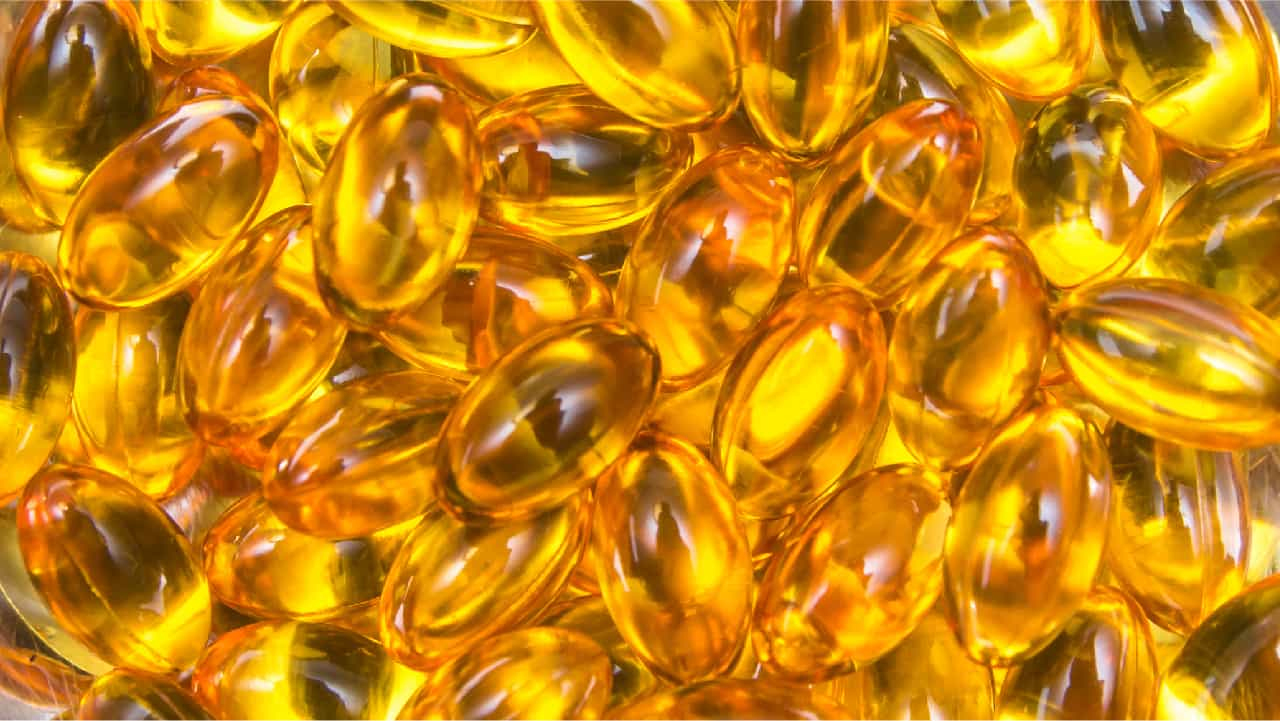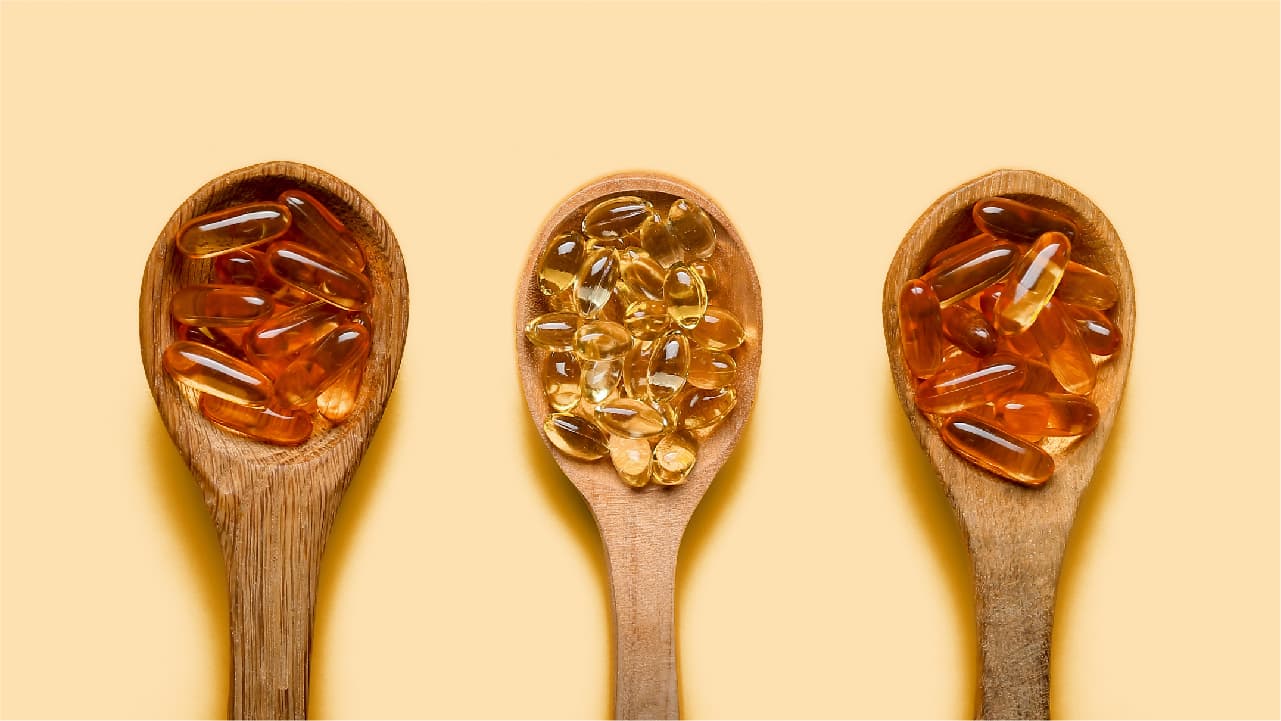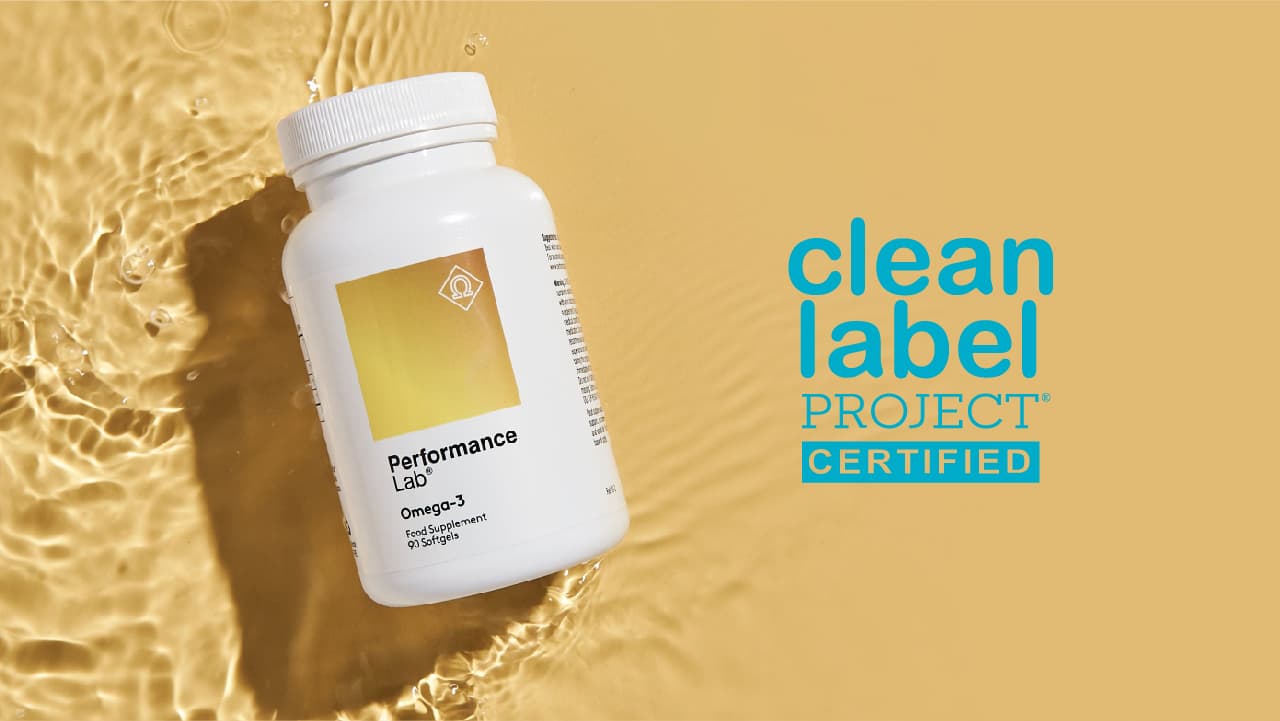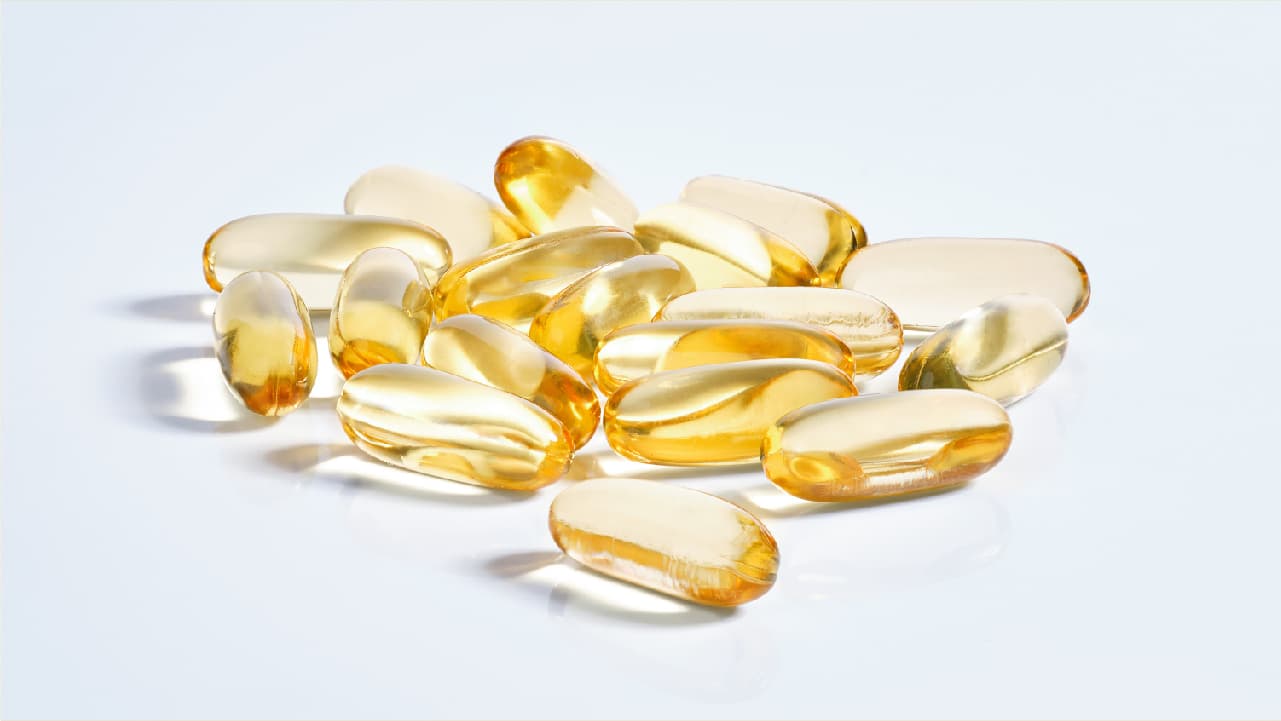Recently, we got asked some pretty awkward questions:
- "Can you provide me with EVIDENCE that your product is just as safe as eating actual small fish?"
- "Do you have a certificate verifying that Performance Lab Omega 3 supplements are free from oxidation?"
- "How does the product not spoil without any preservatives?!"
This quick-fire questioning would have some brands running for cover* (*seriously, see end of article).
But it's ok.
These are very good questions.
Because fish oil is a popular supplement. Which means there's a lot of them out there, and prices can vary.
But so can the quality.
So it's important to know what to look for, and how to assess the worth of what you're paying for.
Let's talk about oxidation.
What is Fish Oil Oxidation?

This is where omega-3 fatty acids in fish oil, primarily EPA (eicosapentaenoic acid) and DHA (docosahexaenoic acid), react with oxygen. During this reaction, peroxides and aldehydes are formed. (1)
Which isn't ideal.
Because let's face it, if we're buying a supplement, we're doing it to improve our health. The last thing anyone wants to hear is that it may contain toxins that could potentially harm us.
Nobody likes an 'aldehyde'.
And nobody likes that unpleasant fishy aftertaste either.
But that's what certain levels of oxidation can do to fish oil. Exposure to heat, light and air can all cause oxidation in any oil. Including algal oil.
Is it Dangerous?
Animal studies have associated consuming oxidized fats and oils with various health risks. (2) And there's some evidence to suggest regularly ingesting them over time can exacerbate inflammation in the body. (3)
While animal studies have linked oxidized fats to health concerns, there's still limited research on the impact in humans. So the verdict is: more research is needed.
What we can be sure of, is the effect on quality.
Meaning you may not get the full health benefits you're looking for. And it can affect the taste and smell, making you not want to take it in the first place. Both of which, completely defeat the point of taking a supplement.
Checking the oxidation levels of your omega-3 is a good indicator for quality.
But how do we do that?
The good news is, the industry has put in place a standard to assess the purity of fish oil and algal oil:
The TOTOX value.
The TOTOX value indicates the freshness and quality of an oil. The lower the TOTOX value, the better the quality. Anything with a value above 26 is considered unacceptable and is most likely on its way to rancidity.
Phew. That must mean our supermarket shelves are safe.
Nothing would make it through if it had a TOTOX value of 26 or more. Right?
Unfortunately not...
Oxidized Omega-3s in Supermarkets

That's the reason why Fred got in touch with us,
"Dr Paul Mason MD is both a medical doctor and expert on nutrition. He says fish oil supplements are invariably oxidized or highly prone to oxidation."
So we checked out Dr Paul Mason's YouTube video to see what he was saying. He references a study carried out on fish oil supplements in Australia.
The study investigated oxidation levels in off-the-shelf supplements. (4) They took 26 supplements that were being sold from reputable big chain supermarkets and pharmacies.
The study found that 38% of supplements exceeded international limits for primary oxidation, 25% for secondary, and 33% for total oxidation. Dr Paul Mason was right.
Never mind the TOTOX.
A third of products on shelves, were above the TOTOX threshold of 26.
And it's not just in Australia. A scientific paper in New Zealand found over 20% of fish oil products didn't meet international recommendations. (5)
According to Labdoor, an independent supplement testing company, more than one in 10 fish oil supplements on U.S shelves were above the recommended maximum limit. And over half came back with a result that was only just under the limit of 26. (6)
Which brings us again to where do we find this information? And while we're there, what else should we be looking for?
How Do I Choose the Best Omega-3 Supplement?

Knowing the TOTOX value of an omega-3 is a good start. It's a true indicator of how fresh and pure the product is. Less than 10 means it's very good quality. Less than 5 - extremely high quality.
Performance Lab Omega-3 has a TOTOX value of 2.
But when it comes to overall quality, there are additional elements to look out for.
It's worth mentioning that declaring your TOTOX value isn't mandatory. In the U.S, the FDA requires manufacturers to ensure their products are safe and properly labeled. But it doesn't explicitly require a TOTOX Analysis for omega oil supplements.
So, where can you find this information?
Reputable, quality brands will always be eager to share this information with you. If you can't find it on their website, get in touch and ask for it. They should be happy to share this along with any other queries you may have.
What else should I ask about?
Peroxide Value: A Freshness Indicator
Peroxide value measures the initial oxidation products in the oil. Which indicates how fresh it is. To ensure you're choosing a high-quality fish oil or algal oil supplement, the GOED (Global Organization for EPA and DHA Omega-3s) recommends looking for a peroxide value of 5 meq/kg or lower. (7)
Performance Lab Omega-3 has a peroxide value of less than 0.1.
Anisidine Levels: A Quality Benchmark
Anisidine levels measure secondary oxidation products that accumulate as the oil ages.
As oxidation progresses, the peroxides formed in the initial stages break down into secondary products. The aldehydes. These can affect the oil's flavor, aroma, and nutritional quality. The anisidine value measures the number of aldehydes formed.
A lower anisidine value indicates less oxidation and higher quality. The GOED standard for anisidine value is 20 or lower.
Performance Lab Omega-3 has an anisidine level of 2.
Purity and Contaminants: Clean Supplement Assurance

When we consume fish or fish oil, there's potential to be exposed to whatever contaminants are found in natural marine habitats.
High-quality fish oil or algal oil supplements are meticulously tested to ensure they are free from harmful contaminants like heavy metals (mercury, lead), dioxins, and PCBs. Certifications from reputable third-party organizations are crucial as they verify the purity of each batch.
Performance Lab Omega-3 is derived directly from algae.
Algae is the original source of omega-3 in fish oil. So while some people are under the impression you must consume fish or fish oil supplements in order to get your omega-3, the source the fish got it from, was algae.
We grow our micro algae in strictly controlled tanks meaning it bypasses the common contamination risks associated with fish-derived oils, or algae products grown in ponds on arid land. This ensures you get all the omega-3 benefits without the worry of heavy metals or other pollutants.
EPA and DHA Values: Essential for Health
Many organizations suggest an intake of around 500 mg combined EPA and DHA per day for healthy adults.
Performance Lab Omega-3 contains 540mg of DHA and 270mg of EPA.
Third Party Testing and Verification
Third party testing provides an unbiased assessment of the product's purity, potency, and safety. Organizations like Labdoor and Clean Label Project™ provide supplement testing to ensure that what's stated on the label appears in every bottle.
Performance Lab Omega-3 is third-party tested and validated by Clean Label Project™.

It's not good enough to just say we're clean.
We get it certified by independent, non-profit organizations. Clean Label Project™ make sure our supplements meet the highest standards for purity and safety. (8) We want you to have peace of mind. And know you're taking something that's good for you, without any hidden nasties.
The following questions have all been asked by customers in our Performance Lab community. We're always happy to hear from you guys, and we'll always answer promptly and directly.
FAQS
How Does the Product Not Spoil Without Any Preservatives?!
Good question. If we've got this amazing TOTOX score, where's the sacrifice being made?
In terms of preservation, the tocopherol and rosemary act as natural antioxidants. Significantly reducing the risk of rancidity. Additionally, each softgel is filled to its capacity to eliminate any potential oxygen bubbles that may lead to oil degradation.
Does your Omega-3 Supplement Contain BMAA?

BMAA is a neurotoxic amino acid produced by certain species of cyanobacteria, also known as blue-green algae. (9) They're found in marine, brackish, and freshwater environments. BMAA has gained attention recently due to its association with neurodegenerative diseases such as Alzheimer's disease and Parkinson's. (10)
This raised concerns around algae supplements.
Performance Lab Omega-3 is sourced from golden algae.

Blue-green algae are not typically good sources of EPA and DHA so most algal oil supplements are from golden algae. Our algae are grown in isolated tanks within a laboratory setting where temperature, UV light, glucose and oxygen levels can be manipulated. Not only does this increase the amount of omega-3s present, but it also ensures it's completely free of contaminants.
Is There Any Carrier Oil in Your Omega 3 Softgels?
We understand that carrier oil can be an issue for some people. There are concerns about allergies, purity, quality, and environmental concerns.
We use a small amount of sunflower oil as a carrier in our softgels. It makes up 3.19% of each softgel. The reasons we chose sunflower oil are:
Neutral Flavor and Odor: Sunflower oil has a mild flavor and odor, so it won't overpower.
High in Healthy Fats: Sunflower oil is rich in polyunsaturated fats, particularly linoleic acid, an essential fatty acid the body needs but can't produce on its own. These fats are considered healthy and can contribute to overall well-being.
Long Shelf Life: Sunflower oil has a relatively long shelf life, especially when stored properly. This helps to extend the overall shelf life of the supplement and ensures that it remains stable over time.
Non-Allergenic: Sunflower oil is less likely to cause allergic reactions compared to some other oils, such as soybean oil or almond oil, making it a safer option for individuals with allergies or sensitivities.
|
|||
|
|||
|
|||
|
|||
|
|||
|
|||
|
Our Omega-3 Certificate of Analysis reads like a glowing school report. But there's always homework for you guys too...
5 Ways to Preserve the Freshness of Your Omega-3 Supplement

Finding the right omega-3 supplement is just the beginning. To maximize the benefits and ensure you're getting the highest quality from each dose, it's important to keep your supplements as fresh as possible. Here are five practical steps you can take:
1. Storage is Key
Omega-3 supplements are sensitive to light, heat, and air, which can accelerate oxidation. Store your capsules or liquid in a cool, dark place. This environment helps slow down the oxidation process, keeping your supplements fresher for longer.
2. Avoid Stockpiling
While it might be tempting to buy in bulk, omega-3 supplements have a finite shelf life. Purchase amounts you can realistically use before their expiration date. This ensures you're consuming the product at its peak efficacy and freshness.
3. Trust Your Nose
Omega-3 supplements that have gone bad or are significantly oxidized may have a strong, rancid fishy smell. If your supplement smells off, and it's within the expiry date, get in touch with the brand.
4. Consider Packaging
The way a product is packaged can significantly impact its shelf life. Look for omega-3 supplements in opaque bottles, UV blocking glass or blister packs. These packaging choices help protect the oil from oxygen and light, two factors that can lead to oxidation.
5. Stay Informed on Product Testing
Choose brands that offer transparency about their product testing and quality assurance practices. Knowing that your omega-3 supplement has been rigorously tested for oxidation and purity at the time of purchase provides a baseline for quality. However, remember that proper storage and handling on your part are essential to maintain that quality over time.
Something Else to Think About...
*When writing this piece, I contacted 6 of our competitors. Ranging from the well-recognized brands you'll see on every supermarket shelf, to the natural health store brands and the smaller independents. I asked them about their TOTOX rating, their third-party testing, and the amount of EPA and DHA their supplement contained.
I heard back from 2 of them. The smaller independent ones.
I was surprised but not surprised.
I assumed the bigger companies would have large customer service teams, armed with facts and frequently asked questions. Or at the very least, a direct hotline to their senior buyers and nutritionists.
But in 4 out of 6 cases, I either heard nothing, or it was a customer service bot, giving me the usual bot-like platitudes.
At Performance Lab®, a real-life human sees every question you ask us.
And we're happy to share any information you need in order to make an informed purchase. We have super friendly and helpful nutritionists to answer your questions. Which means you talk directly to the most qualified person there is to answer your questions. No ifs, no bots.
We'll also listen to your feedback and improve wherever we can. Because all of your questions are useful to us. So please, keep them coming.














